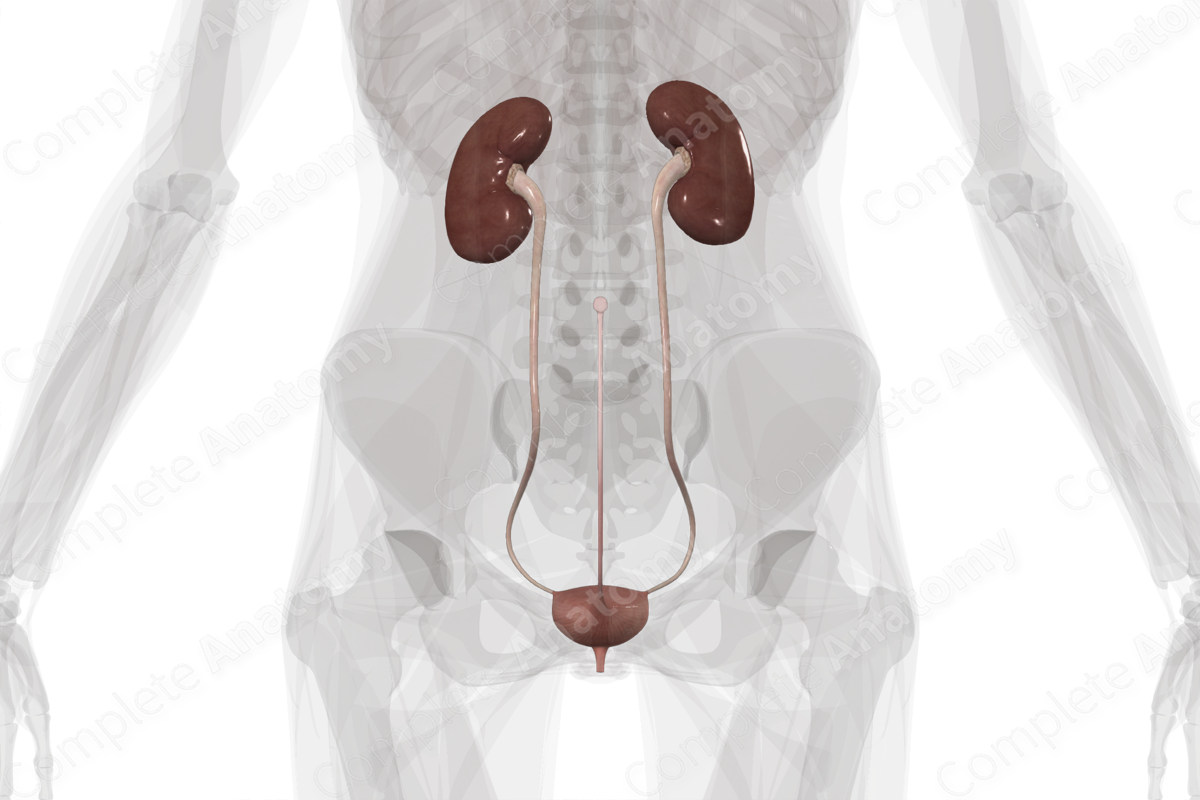
Description
The urinary system comprises the organs responsible for producing, storing, and excreting urine. Specifically, it includes the kidneys, which produce urine, the ureters, which transport the urine to the bladder, the bladder that stores urine, and the urethra, which discharges urine from the body.
The kidneys are responsible for maintaining an appropriate amount of fluid in the bloodstream and for filtering out unnecessary waste products present in blood. Approximately 1–2 liters of urine may be produced per day in humans, depending on the fluid intake of the individual.
A secondary function of the urinary system is the regulation of the pH and concentration of electrolytes in the blood. Excesses of electrolytes, water, salts, bicarbonates, and other wastes, such as urea, are removed from the bloodstream by the kidneys and are transported via the minor and major calices to the renal pelvis. From there, urine passes to the bladder via the ureters. Smooth muscle surrounding the walls of the calices, renal pelvis, and ureters contract in peristaltic waves to propel the urine towards the bladder.
The musculomembranous bladder sits on the pelvic floor. It collects and stores urine before it is excreted through the urethra. The voluntarily controlled external urethral sphincter muscle prevents the exit of urine from the bladder and works in unison with the autonomic internal urethral sphincter, thus control the release of urine from the bladder to the urethra.
Related parts of the anatomy




